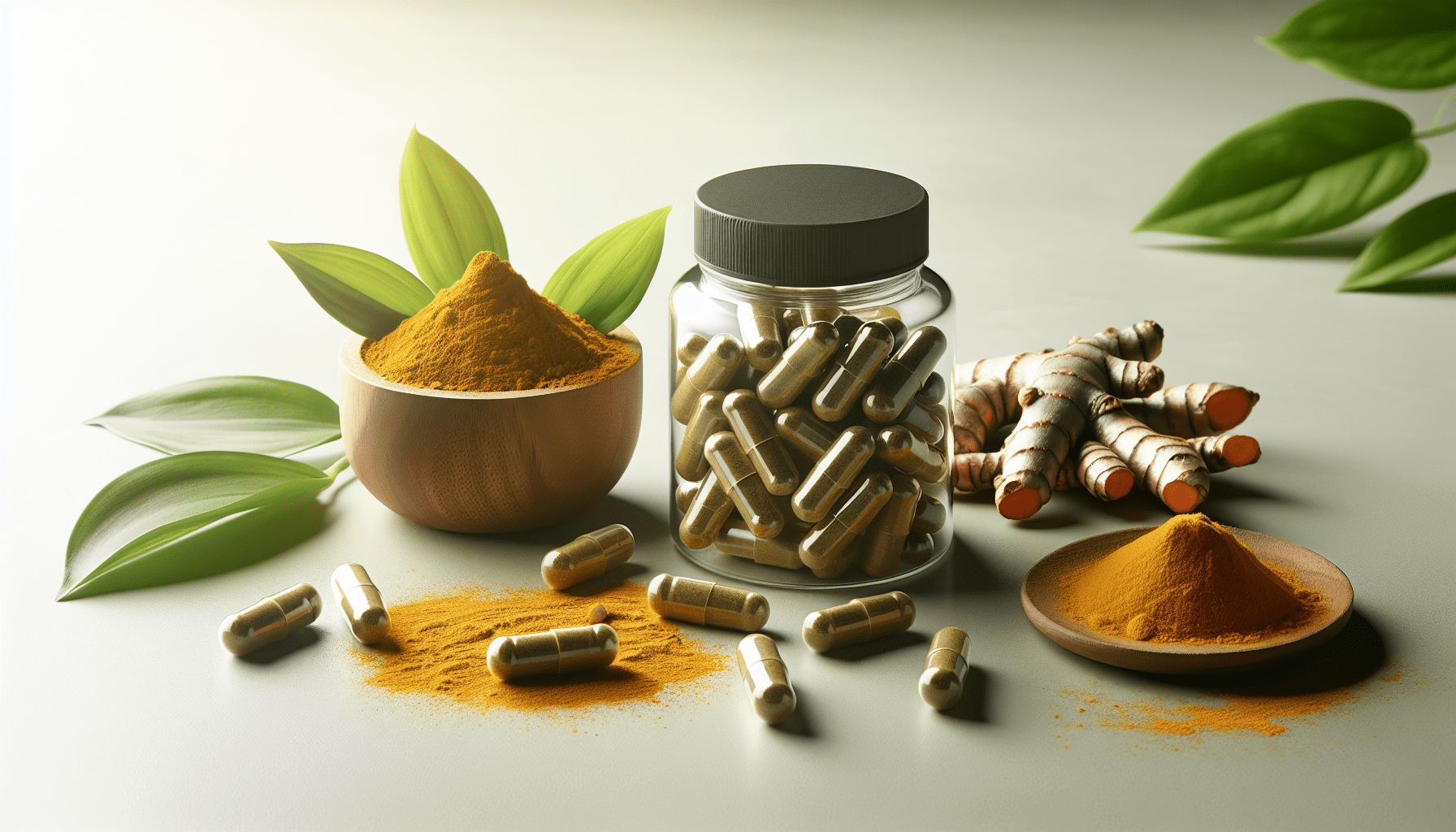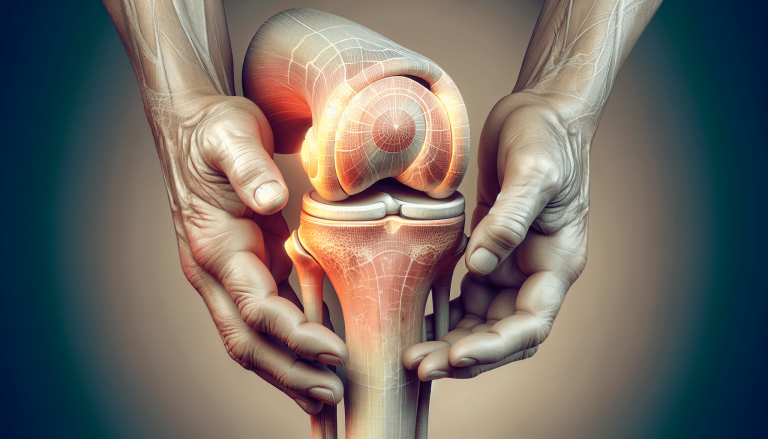What Is The Best Supplement For Inflammation And Joint Pain?
In the article “What Is The Best Supplement For Inflammation And Joint Pain?”, you’ll explore the top supplements that can help alleviate your discomfort and improve your quality of life. You’ll discover the science behind these supplements, learn about their benefits, and understand how they work in your body to combat inflammation and soothe joint pain. Whether you’re dealing with chronic conditions or just the occasional ache, this article provides you with the information you need to make informed choices and find effective relief.
Have you noticed that your joints are feeling achy or stiff lately? Or perhaps you’ve been dealing with chronic pain and discomfort due to inflammation? If yes, you’re not alone. Many people experience these symptoms at some point in their lives, and the quest for relief often leads to exploring various supplements. But what is the best supplement for inflammation and joint pain?
Understanding Inflammation and Joint Pain
Before diving into the best supplements, it’s essential to understand what inflammation and joint pain are and why they occur. Inflammation is your body’s natural response to injury or infection. However, when inflammation becomes chronic, it can lead to various health issues, including joint pain.
What Causes Inflammation?
Inflammation can be caused by a variety of factors, including:
- Injury or trauma: Sprains, strains, or fractures.
- Chronic diseases: Such as arthritis, diabetes, and autoimmune disorders.
- Lifestyle factors: Poor diet, lack of exercise, smoking, and excessive alcohol consumption.
Types of Joint Pain
There are several types of joint pain, each with different causes:
- Osteoarthritis: Wear and tear of cartilage.
- Rheumatoid arthritis: An autoimmune disease where the immune system attacks the joints.
- Gout: Caused by the buildup of uric acid crystals in the joints.
Popular Supplements for Inflammation and Joint Pain
Now that we have a basic understanding of what inflammation and joint pain are, let’s explore some popular supplements that may help in alleviating these conditions. We’ll review each supplement, exploring their benefits, dosage, and potential side effects.
Omega-3 Fatty Acids
Omega-3 fatty acids, often found in fish oil, are known for their anti-inflammatory properties. They can help reduce joint pain and stiffness, particularly in people with rheumatoid arthritis.
Benefits:
- Reduces inflammation.
- Alleviates joint pain and stiffness.
- Supports heart health.
Dosage:
- Typically, 1,000-3,000 mg per day.
Side Effects:
- Potential for fishy aftertaste or digestive upset.
Turmeric (Curcumin)
Turmeric, especially its active ingredient curcumin, has potent anti-inflammatory and antioxidant properties. It’s widely used for managing pain and inflammation in conditions like arthritis.
Benefits:
- Powerful anti-inflammatory effects.
- Antioxidant properties that combat oxidative stress.
- May improve symptoms of arthritis.
Dosage:
- 500-2,000 mg of turmeric extract per day, often standardized to 95% curcuminoids.
Side Effects:
- May cause digestive issues in large doses.
Glucosamine and Chondroitin
These two compounds are often taken together to support joint health. They are natural components of cartilage and may help in maintaining it.
Benefits:
- Supports cartilage health.
- May reduce symptoms of osteoarthritis.
- Aids in joint repair and maintenance.
Dosage:
- 1,500 mg of glucosamine and 800-1,200 mg of chondroitin daily.
Side Effects:
- Potential for mild stomach upset.
CBD Oil
Cannabidiol (CBD) oil has gained popularity for its anti-inflammatory and pain-relieving effects.
Benefits:
- Reduces chronic pain and inflammation.
- May help with anxiety and sleep disorders.
- Non-psychoactive, making it suitable for daily use.
Dosage:
- Varies significantly, often 25-50 mg per day to start.
Side Effects:
- May cause drowsiness or dry mouth.
Boswellia Serrata
Also known as Indian frankincense, Boswellia is noted for its capability to reduce inflammation and support joint health.
Benefits:
- Strong anti-inflammatory properties.
- May help in reducing pain and improving joint function.
- Supports overall joint health.
Dosage:
- Typically, 300-500 mg of Boswellia extract taken two to three times per day.
Side Effects:
- Generally well-tolerated, but potential for digestive upset.
MSM (Methylsulfonylmethane)
MSM is a sulfur-containing compound often used in the treatment of joint pain and inflammation.
Benefits:
- Helps reduce inflammation.
- Supports cartilage health.
- May provide pain relief from arthritis.
Dosage:
- 1,000-3,000 mg per day, often split into two doses.
Side Effects:
- Can cause gastrointestinal issues.

Comparing Different Supplements
To aid your understanding, here’s a table that summarizes the key aspects of each supplement:
| Supplement | Primary Benefit | Typical Dosage | Potential Side Effects |
|---|---|---|---|
| Omega-3 Fatty Acids | Reduces joint pain and stiffness | 1,000-3,000 mg per day | Fishy aftertaste, digestive upset |
| Turmeric (Curcumin) | Anti-inflammatory, antioxidant properties | 500-2,000 mg per day | Digestive issues |
| Glucosamine & Chondroitin | Supports cartilage health and joint repair | Glucosamine: 1,500 mg, Chondroitin: 800-1,200 mg daily | Stomach upset |
| CBD Oil | Pain relief, reduces inflammation | 25-50 mg per day starting dose | Drowsiness, dry mouth |
| Boswellia Serrata | Reduces inflammation, supports joint health | 300-500 mg two to three times per day | Digestive upset |
| MSM | Reduces inflammation, supports cartilage health | 1,000-3,000 mg per day | Gastrointestinal issues |
Other Considerations
Consultation with Healthcare Providers
Before starting any supplement, it’s crucial to consult with a healthcare provider. They can provide personalized advice tailored to your specific condition and needs. Especially if you’re on medication or have underlying health issues, a healthcare provider can help prevent potential interactions and side effects.
Lifestyle Changes for Better Joint Health
In addition to supplements, adopting certain lifestyle changes can help manage inflammation and joint pain effectively:
- Diet: Incorporate anti-inflammatory foods like fruits, vegetables, nuts, and fatty fish.
- Exercise: Regular physical activity helps maintain joint function and flexibility.
- Weight Management: Maintaining a healthy weight reduces stress on joints.
- Avoid Smoking and Excess Alcohol: Both can exacerbate inflammation and contribute to joint pain.
Mind-Body Practices
Practices like yoga and meditation can also help in managing pain and reducing stress, which can aggravate inflammation. Techniques like deep breathing and progressive muscle relaxation may not directly affect joint health but can improve overall well-being and cope with chronic pain.

Frequently Asked Questions (FAQs)
Can I Take Multiple Supplements Together?
Combining certain supplements can be beneficial but should be approached with caution. For instance, taking glucosamine with chondroitin makes sense as they work together to support joint health. However, combining too many supplements at once can lead to unwanted side effects. Always consult with a healthcare provider when considering multiple supplements.
How Long Before I Feel the Effects?
The time it takes to notice effects can vary depending on the supplement and your individual condition. Some people report relief within a few weeks, while others might take several months to see significant benefits. Patience and consistency are key.
Are There Natural Alternatives to Supplements?
Yes, many natural remedies and lifestyle changes can also help:
- Herbs: Ginger and green tea have anti-inflammatory properties.
- Spices: Cinnamon and black pepper can help fight inflammation.
- Essential Oils: Eucalyptus and lavender oils are often used for pain relief when applied topically.
How Do I Know if a Supplement is Working?
Track your symptoms and overall improvement over time. Keep a journal of your pain levels, mobility, and any side effects you experience. This can help you and your healthcare provider determine if the supplement is effective for you.
What Diet Can Help With Inflammation?
Certain foods can help keep inflammation at bay:
- Anti-inflammatory foods: Berries, fatty fish, broccoli, avocados.
- Avoid inflammatory foods: Processed foods, sugary beverages, red and processed meats.
Conclusion
Managing inflammation and joint pain can be a journey, but with the right approach and support, it’s possible to find relief. Supplements like Omega-3 fatty acids, turmeric, glucosamine and chondroitin, CBD oil, Boswellia Serrata, and MSM offer promising benefits. However, it’s vital to approach supplement use thoughtfully and consult with healthcare professionals to tailor choices that align with your unique needs.
Remember, supplements are but one piece of the puzzle. Coupling them with healthy lifestyle choices can make a substantial difference in managing inflammation and joint pain. So, take your time, listen to your body, and seek the support you need. Your joints will thank you!
Additional Resources

Age, diet, bad luck, DNA… You’ve been fed every lie possible about why your joints are in pain…
But none of it was ever real: here’s why… The truth is far more shocking than you think, and it can even put your life in danger!
But one scientist decided he had enough of the elite’s lies, and came forward with research… That could potentially ruin the entire painkillers industry and help you restore your joints to full power in a matter of weeks… All from the comfort and safety of your home!
No more life threatening surgery, no more costly injections, no more useless painkillers…
And it’s all available here, where he explains the Big Pharma lies in the smallest of details!






